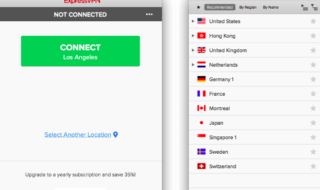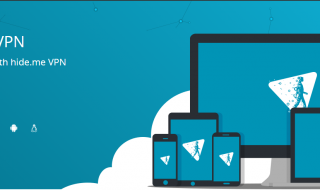The more access to relevant user data a company has, the more likely they are to succeed. This is because data is the bedrock on which all solid business decisions are built. And without sufficient user data, it would be impossible for an e-commerce business to grow or expand in today’s digital world.
Acquiring this data is something every company wants to do regularly. This is especially because new information is added to the internet every so often. Web scraping is the general process through which these data can be gathered and, once collected, and the data can be used for many business operations.
Contents
However, collecting data through web-scraping can very easily become an arduous task, and this is where proxies come in. They assist in making sure the process is as seamless as possible.
Aside from web scraping, proxies can be used for many other business activities, as we will see shortly.
What Is A Proxy?
Proxies are intermediary tools that can service internet users by helping to relay their requests to the target servers. They are software and computers used proxies. And concealing users’ IP and using their proxies add an extra layer of protection to their users.
Proxies also filter incoming traffic to detect and remove harmful content before they get to the end-user. And for those who reside in the forbidden location, proxies are a perfect solution for bypassing the set restrictions and helping the users get access to blocked websites.
Interestingly, while some proxies do the IP switch manually, others do so automatically during each outgoing connection or at regular intervals.
How Does a Proxy Work?
Proxies work in a somewhat simplified manner by substituting the user’s details with theirs. It is common knowledge that any device that must connect with the web must use unique sets of numbers known as IP address. This number is like the physical address of the user. Still, it is assigned by the user internet service provider (ISP), and they differ from device to device, which is how users can stand apart and be easily identified on the internet.
However, this unique address that helps the websites recognize which device to send results to can also become the sole target of bans, blocking, and online attacks.
By standing in the middle, the proxy can prevent this by using its details to send and receive connections. The proxy also encrypts the data while being moved from server to clients and back again.
Most Prominent Use Cases of Proxies
Some of the most prominent applications of proxies in today’s world are described below:
- Improving Online Security for Brand and Data
Proxies are important for keeping businesses safe while they explore the internet. Hiding users’ information ensures they do not become targets of malicious attacks.
And when attacks are successful, they can result in data breaches which in turn can result in damages that cost a fortune to repair or even the loss of customers’ trust.
- Bypassing Content Restrictions
Restrictions are sometimes placed on content and websites to prevent access by outsiders. With some restrictions such as geo-blocking, it could become completely for a business located in a certain part to interact with some websites or extract their data. The effect of this can spread to inhibit such a brand’s growth or expansion.
Proxies are, essentially, used to overcome these kinds of restrictions and allow brands access to the data they require.
- Gathering Data for Business Strategy
The best business decisions and strategies are often developed using relevant consumer data harvested in real-time. Without data, there would be nothing to back plans up, and such plans in the market today would be bound to fail.
But smart business strategies such as pricing intelligence and dynamic pricing work best when supported by sufficient user and market data. Collecting these data manually would not only be tedious but could also be grossly unrewarding as data needs to be collected quickly and regularly to be of any relevance.
Proxies are usually used to make the above a possibility – gather large data and do it automatically.
- Sneaker Copping
This is a culture most common amongst Sneakerheads and retail sellers and is defined as the process of purchasing multiple pairs of limited editions of sneakers. Buying one pair alone is usually highly challenging as limited editions are considered a prize to so many people.
Yet, sneaker proxies do not only make this possible, but they can even facilitate the process of buying multiple pairs at once.
Why Residential Proxies Are Precisely Used For Sneaker Copping
Precisely, residential proxies serve as the best sneaker proxies because they are usually equipped with millions of IPs and proxies, as well as several locations that they can switch upon every new request to cop a sneaker.
The IPs also resemble those used by regular homeowners, and the fact that they are changed regularly makes it unlikely for them to be detected or blocked.
Residential proxies can even be used to bypass geo-restrictions and cop sneakers from any part of the world without being tied down by their actual physical location. If you’re interested in using proxies for sneaker copping, then learn more about the Oxylabs proxy pool.
Conclusion
For most e-commerce brands today, proxies come in handy for a lot of useful applications, including protecting the brand, bypassing restrictions, scraping user data for important business decisions, and much more. And residential proxies are the group of proxies that efficiently do all of the above and serve as suitable sneaker proxies.




